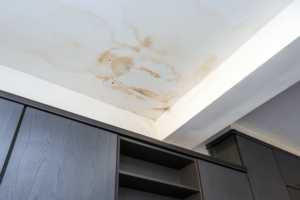What to Do If You Have Water Damage in Your Home
Water damage can cause a variety of losses to your property. It can cause the rotting of wood, the growth of mold, and bacteria. This article discusses the types of damages caused by water and how to treat them. We will also go over the signs of water damage and the costs associated with the repairs.
Water damage can be caused by several different sources, including overflowing washing machines, clogged toilets, and leaking pipes. It can also occur from natural disasters such as flooding and sewage backup. Regardless of the source, it is important to respond quickly to prevent further damage. This article will discuss some common causes of water damage and how you can minimize the effects of this type of disaster.
Leaky pipes are a common source of water damage and can cost thousands of dollars in damage. Although most leaks are hidden, they can cause a great deal of damage. Old pipes are a common source of pipe leaks, so make sure you hire a licensed plumber to inspect them for leaks.
If you notice water damage after a flood, you should take immediate steps to repair the damage. If the damage is not major, you may be able to get your insurance company to cover the costs. In addition, you should also check if your home insurance policy covers flooding. If so, contact your insurance company immediately to verify coverage.
Overflowing sinks and bathtubs are among the most common causes of water damage. Overflowing water can erode caulk and cause damage to the lining of walls. In addition, moisture that seeps into porous flooring or drywall will lead to discoloration or deterioration and can encourage mold growth.
Another common cause of water damage is broken water pipes. These can break due to a number of reasons, including age and wear. They can also break due to temperature fluctuations. Leaking pipes may not cause much damage, but a burst pipe can be disastrous. In addition, pipes in basements can easily freeze during the winter.
The best way to prevent water damage from occurring in your home is to regularly inspect for water damage. You may notice a spike in your water bill, which could be an indication of a leak. Visiting your home on a weekly basis will help you notice any problems early.
When assessing the cost of water damage repair, it is important to consider the type of water that caused the flood. While clean water is the least expensive type, other forms of water damage may be more expensive. Gray water, for example, is dirty but does not contain serious contaminants. Blackwater, on the other hand, can contain human waste and is the result of flooding or a sewer line backup.
The cost of water damage restoration depends on a number of factors, including the type of water, the volume of water, and the area of the home. However, the cost of water damage repairs can be a reasonable amount compared to the cost of replacing a structure or damaged items.
A reputable restoration contractor will provide a written estimate that explains your options. In addition, they should explain the process of water damage restoration and answer any questions you may have. If you’re comfortable with your DIY skills, you can also rent dehumidifiers and do the necessary repairs yourself.
Water damage repairs are a crucial part of restoring a sound property and creating a healthy environment. Water-damaged structures are prone to mold growth, which is not only unhealthy for occupants but can also cause structural damage. Constant leaking water can also damage the roots of a property and reduce its value.
Water damage cleanup is a complex process that involves removing water, drying out the area, and restoring items. Moreover, structural repairs involve replacing damaged surfaces, wiring, and walls. These additional costs drive up the final total. But the good news is that there are ways to reduce the cost of water damage repairs.
Using smart devices to prevent water damage is another way to reduce the overall cost of water damage repairs. These devices can be operated from a smartphone app and can help to minimize the amount of water that enters your home. Some of these devices can even help to prevent a future water leak by turning off the water supply remotely.
